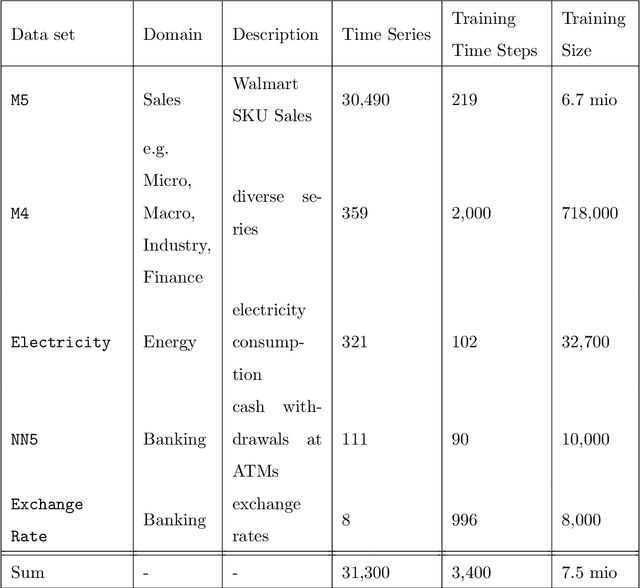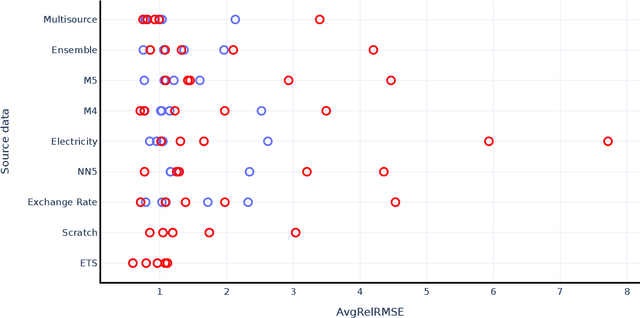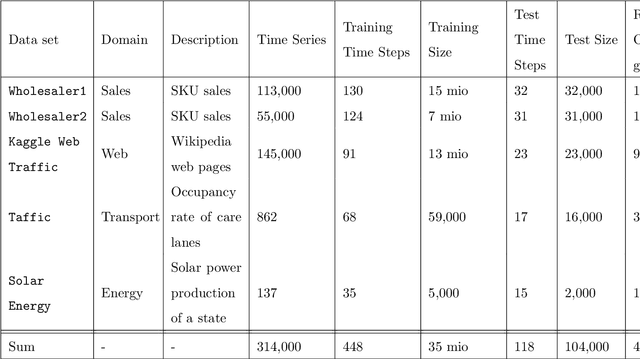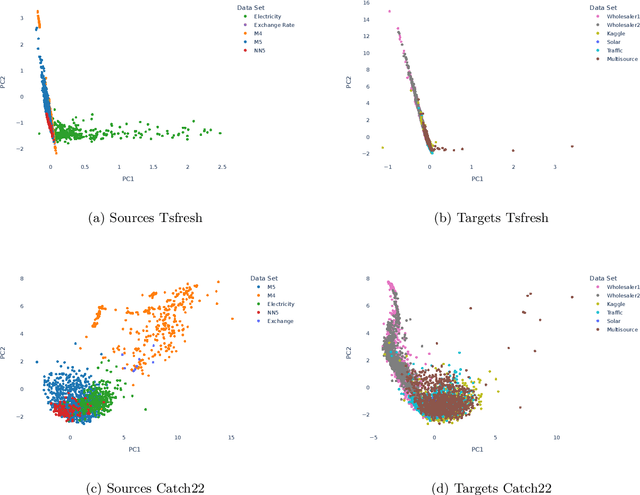The impact of data set similarity and diversity on transfer learning success in time series forecasting
Paper and Code
Apr 09, 2024



Models, pre-trained on a similar or diverse source data set, have become pivotal in enhancing the efficiency and accuracy of time series forecasting on target data sets by leveraging transfer learning. While benchmarks validate the performance of model generalization on various target data sets, there is no structured research providing similarity and diversity measures explaining which characteristics of source and target data lead to transfer learning success. Our study pioneers in systematically evaluating the impact of source-target similarity and source diversity on zero-shot and fine-tuned forecasting outcomes in terms of accuracy, bias, and uncertainty estimation. We investigate these dynamics using pre-trained neural networks across five public source datasets, applied in forecasting five target data sets, including real-world wholesales data. We identify two feature-based similarity and diversity measures showing: Source-target similarity enhances forecasting accuracy and reduces bias, while source diversity enhances forecasting accuracy and uncertainty estimation and increases the bias.
 Add to Chrome
Add to Chrome Add to Firefox
Add to Firefox Add to Edge
Add to Edge